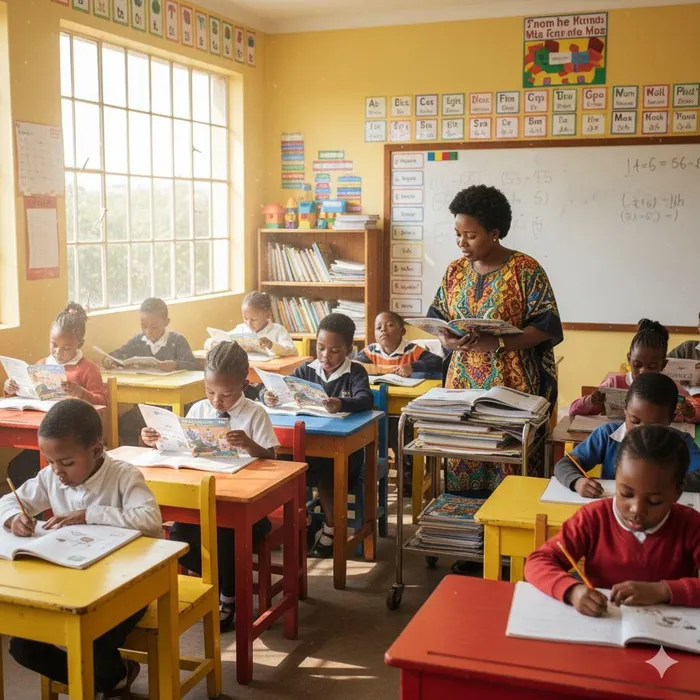South Africa leads SADC in early grade literacy and numeracy policies

South Africa emerges as a leader in foundational learning policies, according to UNESCO and the African Centre for School Leadership.
Image: Gemini
South Africa has emerged as a regional leader in foundational learning, according to the new UNESCO Global Education Monitoring (GEM) Report and the African Centre for School Leadership’s Spotlight Report, Lead for Foundational Learning. The country has introduced, monitored, evaluated and scaled up multiple interventions to improve early grade literacy and numeracy, with strong support from President Cyril Ramaphosa.
The reports highlight South Africa’s comprehensive approach. A new African Union policy dashboard, developed with UNESCO GEM, maps policies and practices to support foundational learning across the continent. South Africa has all recommended policies and practices in place, including frameworks for school leadership, curriculum guidance and teacher support.
Analysis from the World Values Survey shows South Africa has the second-lowest level of public concern about the quality of children’s education in Africa, after Morocco.
Learning outcomes and data
While only 1 in 10 children across Africa complete primary education and achieve minimum learning proficiency, the figure rises to 17% in South Africa. Though learning data remain limited for trend analysis, South Africa is one of three countries (along with Tunisia and Uganda) where progress can be measured over time. TIMSS results show that Grade 5 students’ mathematics proficiency stagnated at 17% between 2015 and 2023, while Grade 9 proficiency improved from 9% in 2011 to 15% in 2023.
Policies and practices driving improvement
The Spotlight Report identifies several positive practices contributing to stronger foundational learning. South Africa’s curriculum provides clear expectations that guide teaching, while textbooks and teacher guides support learning objectives and emphasize assessment. The report also notes the 2011 rollback of the competency-based curriculum as an example of aligning ambitious curricula with available resources and teaching capacity.
South Africa has implemented all six leadership policies recommended to strengthen principals’ roles, covering selection, training and assessment. It also has a national assessment framework, primary school textbook policies and teacher guides for reading and mathematics, ensuring teachers can deliver the curriculum effectively.
The country’s large-scale school feeding programme, fully government-funded, supports three-quarters of primary school children, well above the continental average of 43%, further reinforcing learning outcomes.
The Spotlight Report positions South Africa as a model for other countries in the region, demonstrating how strong policies, effective leadership and resource-backed programmes can improve foundational learning at scale.
Related Topics: